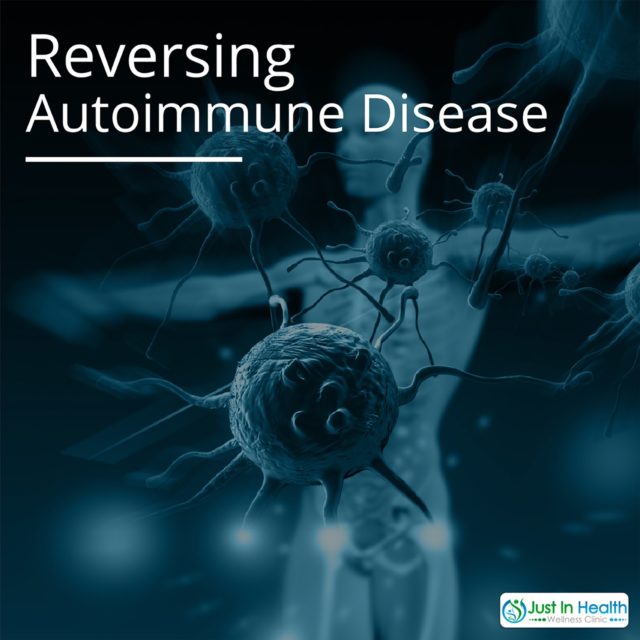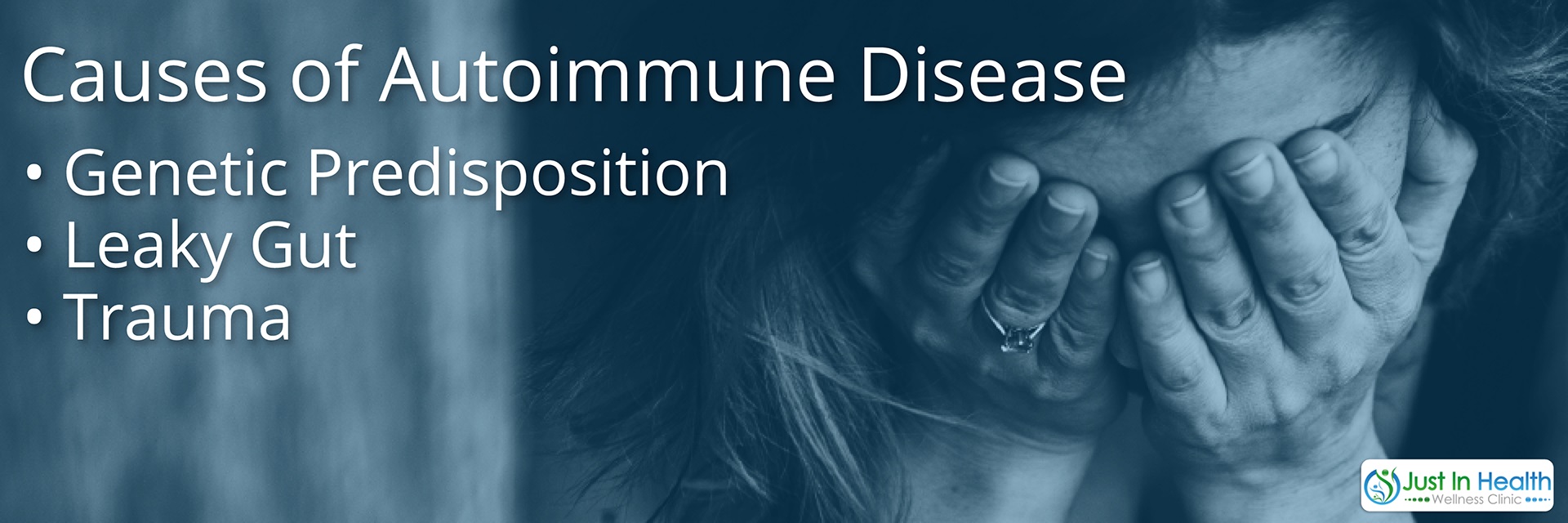

By Dr. Justin Marchegiani
When your immune system response can’t distinguish between your body and any toxins you’ve ingested, the result is called ‘systemic inflammation:’ when your body attacks its own tissues. Your body might intend to fight off an infection or an allergen, but instead points the attack at your joints or your thyroid, or maybe even your whole body. This is how autoimmune conditions, such as arthritis, celiac disease, thyroid disorders, and lupus, begin to grow.

Autoimmune diseases typically stem from one of the following causes:
Genetic Predisposition: While your genes alone do not condone you to a fate of autoimmunity, having a family history is a good indicator that you should be proactive in preventing an autoimmune disease from developing.
The pathogenesis of autoimmune disease is multifactorial, meaning, just because you may have inherited the genes for an autoimmune disease, it does not necessarily mean you will develop one. Studies have shown that some combination of genetic and environmental factors are what ultimately cause or prevent autoimmunity from developing. In this article, we are going to break down some of the ways to prevent this from happening.
Leaky Gut: Food allergies, toxins in our food and environment, stress, gut dysbiosis and an inflammatory diet are causes of leaky gut. Leaky gut occurs when the gut lining is compromised, allowing large food particles and toxins to leak into the bloodstream, causing inflammation and autoimmunity.
Autoimmune conditions affect at least 50 million Americans, as well as millions more worldwide. However, autoimmune disease seems to exist almost exclusively in first-world countries. This is possibly linked to the diversity of the microbiome: in developed countries, we are regularly exposed to antibiotics and consume genetically modified foods laden with pesticides. These contribute to reducing the diversity of our microbiomes. Those in less developed countries have a wider range of gut flora, and don’t suffer from the same autoimmune diseases.
Click here if you are suffering from brain fog, digestive issues, or insomnia!
Trauma: Overwhelming stress or trauma, whether it be physical or emotional, such as a difficult break up, the death of a loved one, or a car accident, is enough to send your body into overdrive and trigger autoimmunity. The immune response due to physical stress (injury) causes profound inflammation, which is known to trigger autoimmune disease.
Up to 80% of people note that they experienced uncommon emotional stress before the onset of their autoimmune disease. Stress-related hormones are presumed to cause immune dysregulation, resulting in autoimmune disease. Stress can be responsible for more than just the onset of autoimmunity, it also feeds continues a vicious cycle of feeding the condition.

Click here for a personalized wellness plan!
If you are dealing an autoimmune disease, or have suspicions, please schedule a consultation with a qualified functional medicine doctor to assess your needs and help you heal.
Click here to talk to a functional medicine doctor about autoimmunity!
References:
https://www.aarda.org/news-information/statistics/
http://cshperspectives.cshlp.org/content/4/3/a007260.full
https://www.ncbi.nlm.nih.gov/pmc/articles/PMC4899145/
https://www.ncbi.nlm.nih.gov/pmc/articles/PMC4036413/
https://www.ncbi.nlm.nih.gov/pubmed/21094920
https://www.ncbi.nlm.nih.gov/pubmed/18190880
https://www.ncbi.nlm.nih.gov/pmc/articles/PMC4061980/
https://www.ncbi.nlm.nih.gov/pmc/articles/PMC2783422/
https://www.ncbi.nlm.nih.gov/pubmed/17364504